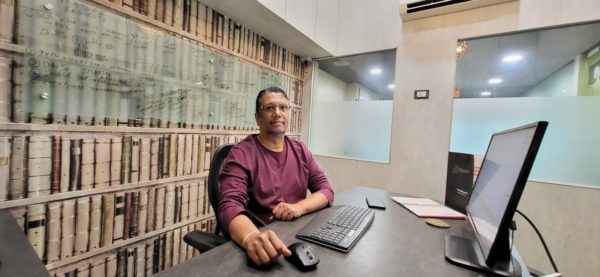India is rapidly emerging as a global hub for technological innovation, and at the forefront of this revolution is the burgeoning field of 3D technologies, particularly additive manufacturing. Companies like Mumbai-based DeltaKraft Solutions are playing a pivotal role in this transformation, democratizing access to advanced manufacturing capabilities. Once confined to niche prototyping, 3D printing is now reshaping diverse sectors from healthcare to automotive and construction to consumer goods, enabling faster product development, unprecedented customization, and reduced waste.
Dnyanesh K. Kulkarni, Founder & Director of DeltaKraft Solutions, shared insights during a conversation with CMR.
Sectors Leading 3D Software Adoption in India
According to Kulkarni, several emerging sectors in India are showing significant growth in their use of 3D software:
- Infrastructure: This sector is increasingly using 3D technologies for design, planning, and visualization, leading to more efficient project execution.
- Manufacturing: 3D software is enabling faster product development, rapid prototyping, and more precise manufacturing processes.
- Traditional Feature Films: The Indian film industry, especially in genres like fantasy, science fiction, and action, heavily relies on 3D animation and Visual Effects (VFX) for enhanced visual storytelling.
- Gaming and Animation: This industry is a natural fit for 3D software, which is crucial for creating immersive experiences and detailed graphics.
Key Drivers for 3D Software Integration
The primary drivers for these sectors to integrate 3D software into their workflows include:
- Freedom of Expression and Enhanced Visuals: 3D technologies provide industries, particularly animation and VFX in cinema, with unparalleled freedom to express creative ideas and produce better visual effects and results.
- Efficiency and Speed: 3D software allows for faster project completion and increased efficiency in the design process, which is critical for meeting tight deadlines and improving productivity.
- Innovation and Customization: The ability to design in-house with high accuracy fosters innovation and allows for greater control over product development and customization.
Addressing Unique Challenges with Autodesk Partnership
Despite the rapid adoption, Indian businesses face specific challenges when implementing new 3D technologies:
- High Initial Costs: The cost of 3D software can be substantial, making the return on investment (ROI) a significant concern for businesses.
- Lack of Skilled Workforce: There’s a shortage of trained professionals capable of effectively utilizing advanced 3D software.
- Need for Tailored Solutions: General solutions often don’t fully meet the specific needs and market conditions of Indian industries.
Deltakraft Technologies’ partnership with Autodesk aims to address these challenges. Kulkarni states that continuous dialogue with companies like Autodesk is crucial for developing localized and cost-effective solutions that cater to the Indian market’s needs.
Client Success and Future Outlook
While unable to name specific companies, Kulkarni highlighted the transformative impact of Autodesk’s 3D software:
- Many companies, particularly in the manufacturing industry, are rapidly adopting these 3D products, leading to high accuracy and speedy project completion.
- Increased efficiency in the design process has resulted in high customer satisfaction and positive feedback.
- The rise of in-house designing has given industries greater control and fostered superb innovation.
Looking ahead, Kulkarni is optimistic about the landscape of 3D software adoption in India over the next 3-5 years. He anticipates very rapid growth, with Artificial intelligence (AI) and cloud computing playing a major role. He believes that the collaboration of these advanced technologies with proper intelligence will be key to India’s digital transformation. Beyond traditional training, Deltakraft Technologies provides value-added services such as regular and project-based training with continuous knowledge upgrades. This support helps bridge skill gaps and promotes the adoption of new technologies, ultimately aiming for a faster ROI for their clients.













